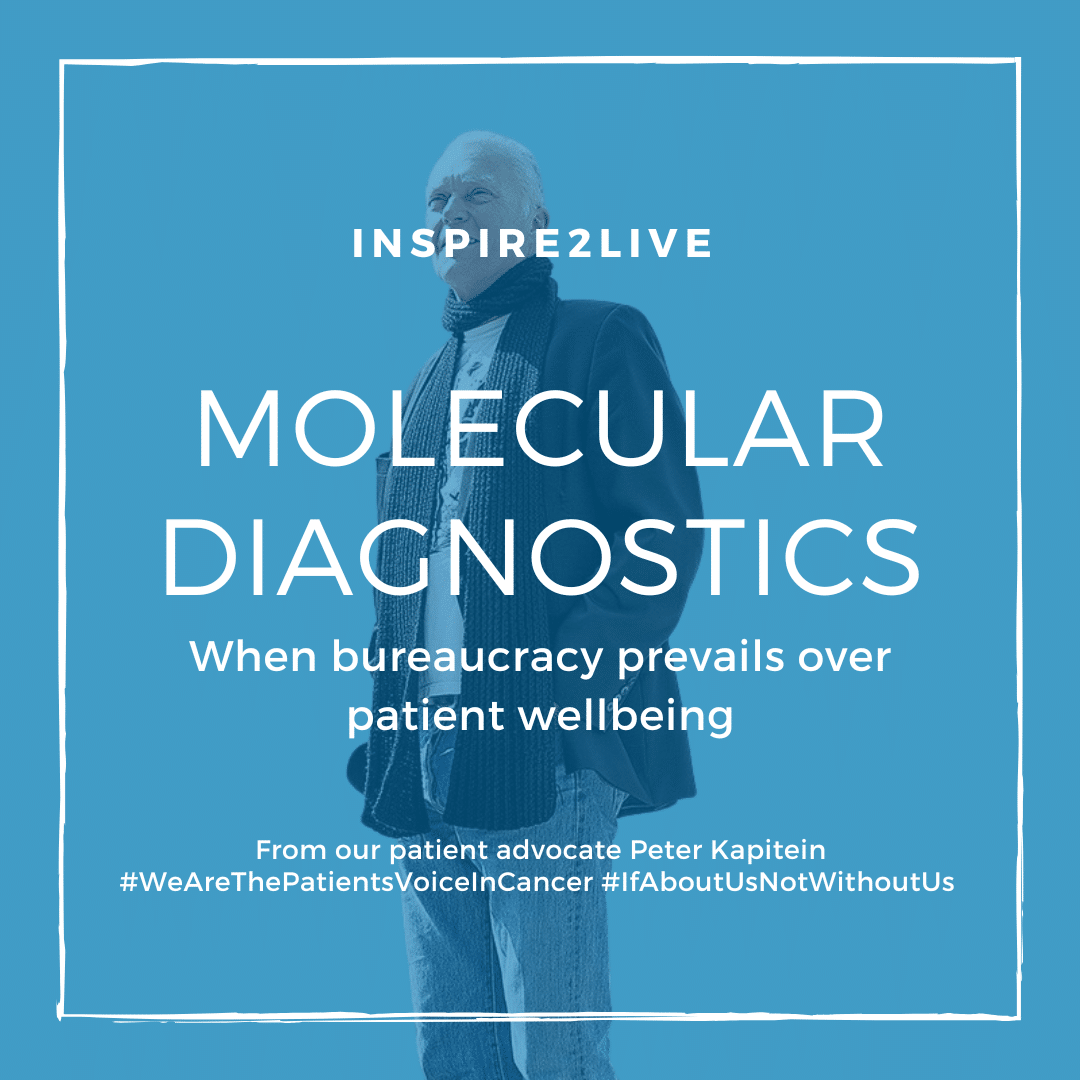When done by the right organisation in the right way, we can learn a lot about individual cancer cases via molecular diagnostics which helps us to find out exactly what is going on for each individual patient.
The whole world talks about personalised medicine but when you take a closer look at the initiatives, they are all variants on the same theme i.e. “Let’s find a group of patients for my medicine”. That’s not personalised medicine, that’s still very much a drug centric approach. Personalised medicine starts with knowing that cancer is a mobile disease and that it is changing while we look at it. We have to make a proper diagnosis, find the right treatment and then review the diagnosis again after one round of treatment: ‘treatment monitoring!’. Then it’s “treat and repeat” until the cancer loses its battle and dies. This is a truly patient centric approach i.e. “We have a patient, with this specific form of disease at this moment in time, so let’s find the most relevant and effective treatment for them”. This is not some sort of future vision because this technology is available now. It may not be perfect, but it’s much better than the existing techniques we are still using today.
This approach starts with good solid sequencing, preferably whole genome sequencing (WGS). Inspire2Live presented an initiative for molecular diagnosis to the Dutch parliament in April 2021 which was met with a unanimous majority “Yes!”. Now, in July 2023, patients are still waiting for this important new diagnosis approach because of bureaucratic procedures. There are many questions which need to be answered by many institutions necessitating a lot of meetings. When we asked to speed things up, because patients are dying, the constant response was: “Sorry guys, it is not easy, it is very complex, we have to act carefully, there are many interests to weigh up, the outcome has to be futureproof and we are very busy with it”.
So, we went back to the Dutch parliament and asked 5 of its members to find out why the national government and institutions aren’t listening to the highest command in our country. This resulted in several serious questions for the minister of health. Let’s wait and see whether this leads to faster implementation of molecular diagnostics and the improvement of treatment outcomes for patients or not.
In the meantime, we can only look on with horror as bureaucracy continues to prevail over patient wellbeing.
Peter Kapitein
Patient Advocate Inspire2Live

